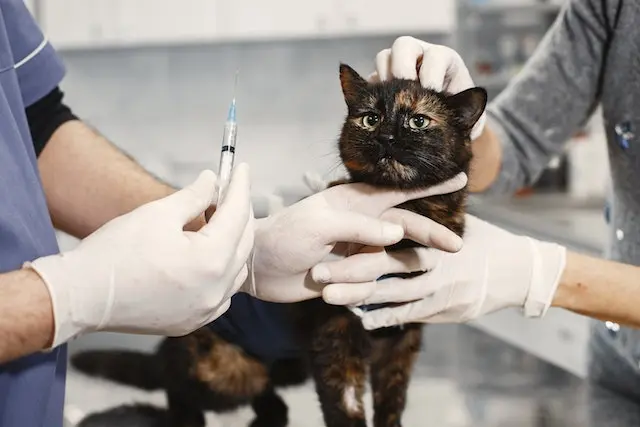Bengal Cats’ Lifespan: How Long Do Bengal Cats Live in the USA?
Bengal cats are known for their striking appearance, playful nature, and wild ancestry. As an owner or potential owner of a Bengal cat, you may be wondering, “How long do Bengal cats live?” In this comprehensive guide, we will explore the average lifespan of Bengal cats, factors that can influence their longevity, and tips to ensure they lead healthy and fulfilling lives. Let’s dive in!
How Long Do Bengal Cats Live? The Average Lifespan of Bengal Cats
When it comes to the lifespan of Bengal cats, there isn’t a definitive answer. However, on average, Bengal cats live between 12 to 16 years. With proper care, some Bengal cats have even been known to live into their late teens. It’s important to note that individual cats may deviate from the average lifespan due to various factors, including genetics, environment, and overall health.
Check also: Best Interactive Cat Toys for Hours of Playful Fun
Factors Affecting the Lifespan of Bengal Cats
Several factors can impact the lifespan of Bengal cats. Let’s take a closer look at these factors and understand their significance:
⇰ Genetic Factors
Bengal cats inherit their genetics from their parents, and certain genetic factors can influence their lifespan. Responsible breeders strive to produce healthy kittens by carefully selecting breeding pairs with no known genetic health issues.
⇰ Health and Veterinary Care
Regular veterinary check-ups and vaccinations are essential for Bengal cats to ensure early detection of any potential health issues. Spaying or neutering your Bengal cat also plays a crucial role in preventing certain diseases and increasing their lifespan.
⇰ Diet and Nutrition
A well-balanced and nutritious diet is crucial for the overall health and longevity of Bengal cats. Providing them with high-quality cat food, suitable for their specific needs, helps maintain their ideal weight, supports their immune system, and reduces the risk of obesity-related health problems.
⇰ Exercise and Mental Stimulation
Bengal cats are highly active and intelligent creatures. Providing them with ample opportunities for exercise and mental stimulation is vital for their well-being. Regular play sessions, interactive toys, and designated climbing areas can help prevent obesity and promote a healthy lifestyle.
⇰ Environmental Factors
Creating a safe and enriching environment for your Bengal cat is vital. Avoid exposing them to toxic substances, keep them indoors to protect them from potential dangers, and provide them with scratching posts, perches, and hiding spots to fulfill their natural instincts.
Common Health Issues in Bengal Cats
While Bengal cats are generally healthy, they can still be prone to certain health issues. Being aware of these conditions can help you detect early signs and seek prompt veterinary care:

- Hypertrophic Cardiomyopathy (HCM): This is a genetic heart condition that affects Bengal cats more commonly than other breeds. Regular cardiac screenings can aid in early detection and management.
- Progressive Retinal Atrophy (PRA): PRA is an inherited eye disorder that can lead to progressive vision loss. Genetic testing is available to identify carriers and minimize the risk of passing on this condition.
- Patellar Luxation: This condition occurs when the kneecap dislocates from its normal position. Regular monitoring and appropriate exercise can help manage this issue.
- Flat Chested Kitten Syndrome (FCKS): Bengal kittens may occasionally develop this condition, which affects their respiratory system. Early diagnosis and veterinary intervention are crucial for their well-being.
- Allergies and Sensitivities: Bengal cats may have food allergies or sensitivities to certain ingredients. It’s important to identify and avoid triggering substances to maintain their health.
[the_ad id=”678″]
Tips for Promoting a Long and Healthy Life for Your Bengal Cat
Now that we understand the factors that can influence the lifespan of Bengal cats, let’s explore some practical tips to promote their longevity:
⇰ Regular Veterinary Check-ups
Scheduling regular visits to the veterinarian ensures that any health issues can be identified and addressed promptly. Vaccinations, dental care, and preventive treatments for parasites are essential components of your Bengal cat’s healthcare routine.
⇰ Balanced Diet
Consulting with your veterinarian to determine the appropriate diet for your Bengal cat is crucial. A diet that meets their nutritional needs, including high-quality protein and essential vitamins and minerals, contributes to their overall health and well-being.
⇰ Hydration
Ensure that your Bengal cat has access to fresh and clean water at all times. Proper hydration supports their kidney function and overall health. Consider providing a water fountain, as cats are often attracted to moving water.
⇰ Weight Management
Maintaining a healthy weight is essential for Bengal cats. Obesity can lead to various health problems, such as diabetes, joint issues, and heart disease. Regularly monitor your cat’s weight and consult with your veterinarian about appropriate portion sizes and feeding schedules.
⇰ Regular Exercise
Engaging your Bengal cat in daily play sessions not only keeps them physically fit but also provides mental stimulation. Interactive toys, puzzle feeders, and activities that mimic their natural hunting instincts can help keep them entertained and prevent behavioral issues.
⇰ Environmental Enrichment
Create an enriching environment for your Bengal cat by providing scratching posts, perches, and interactive toys. Rotate toys regularly to keep them engaged and consider creating vertical spaces, such as cat trees or shelves, for them to climb and explore.
⇰ Dental Care
Proper dental care is crucial for the overall health of Bengal cats. Brushing their teeth regularly, providing dental treats or toys, and scheduling professional dental cleanings, when necessary can help prevent dental diseases and related health issues.
⇰ Stress Management
Bengal cats are intelligent and curious, but they can also be sensitive to changes in their environment. Minimize stress by providing a stable and predictable routine, ensuring they have a quiet and comfortable space, and gradually introducing them to new experiences or individuals.
⇰ Spaying or Neutering
Spaying or neutering your Bengal cat not only prevents unwanted litters but also reduces the risk of certain diseases, including reproductive cancers. Consult with your veterinarian about the appropriate time for this procedure.
⇰ Loving Care and Attention
Lastly, showering your Bengal cat with love, attention, and affection is vital for their emotional well-being. Spending quality time with them, providing interactive play, and establishing a strong bond will contribute to their overall happiness and longevity.
Conclusion
In conclusion, the average lifespan of Bengal cats ranges from 12 to 16 years, with some living even longer. By understanding the factors that influence their lifespan and implementing the tips provided, you can significantly contribute to the health and longevity of your Bengal cat.
Remember, every cat is unique, and it’s essential to monitor their health, provide proper care, and seek veterinary advice when needed. Here’s to a long and fulfilling life for your beloved Bengal companion!





